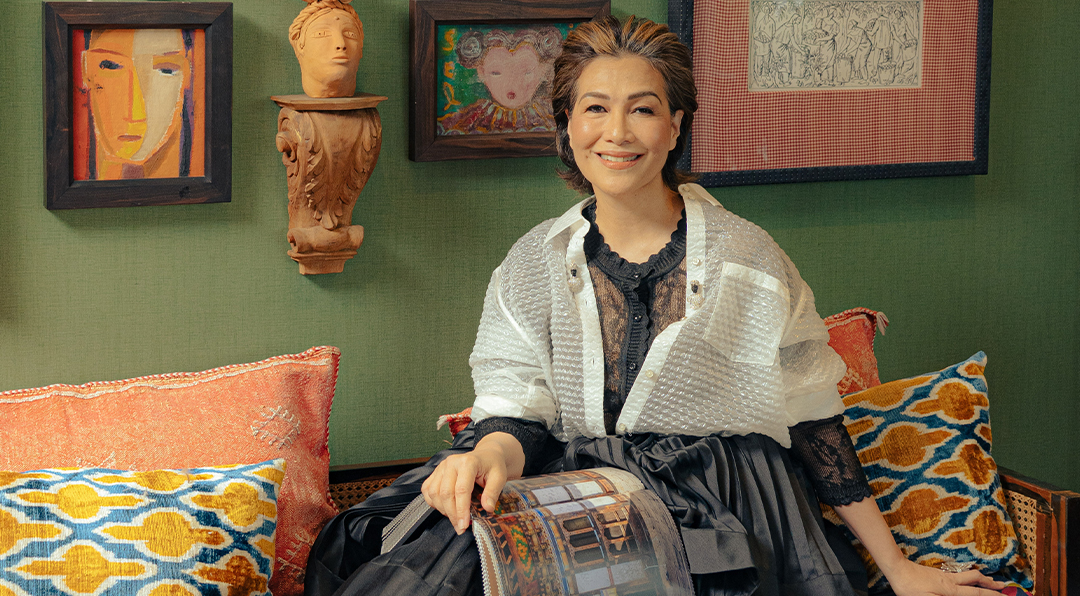
Italian ambassador Massimo Roscigno began his Philippine posting in 2013 with the bicentennial celebration of Italy’s greatest opera composer, Giuseppe Verdi.
When he returns to Rome in August, he leaves behind his “signature project,” the first Venice Film Festival in Southeast Asia, to be held starting today, July 26, until July 30 at the Venice Grand Canal Mall in Mckinley Hill, Taguig City.
This exclusive version of the Venice Film Festival will present eight Italian films which were selected by arts organization La Biennale di Venezia. The roster includes two Italian classics, 2016 releases and three acclaimed Filipino films, including “Ang Babaeng Humayo (The Woman Who Left),” which won the Golden Lion Award in the 73rd Venice Film Festival.
In a press statement, the Biennale said the choice of films represented the trends in Italian cinema—combining new names in film with certified masterpieces.
“This is the real thing, not a copycat,” said Roscigno about the Venice filmfest at a press conference in the embassy residence. Aside from it being the oldest film festival in the world, it also provides an intellectual atmosphere, affording conversations with filmmakers and artists during the event.
It is also set against the historic city of Venice, which Roscigno described as “the jewel of humanity.”
Local edition
The idea to have a local edition of the Venice filmfest began when Sergio Boero, president of the Italian Chamber of Commerce in the Philippines and a cineast, could not find any screening of “Ang Babaeng Humayo” right after it won the highest prize at the 2016 Venice Film Festival. He wondered why obras by Lav Diaz or other festival winners weren’t accessible in their own country.
Roscigno recalled that the idea came up in meetings with Boero’s circle, which had established informal contacts at the Biennale.
The envoy did the spadework, writing to the Biennale and eventually formalizing a memorandum of agreement.
He also met with Liza Diño, chair and chief executive officer of the Film Development Council of the Philippines, and the language and culture group Societa Dante Alighieri Comitato di Manila (SDA).
Boero envisioned an exchange of cultural ideas and art between two different countries. He said there was no success in a country’s development if there was no development in the arts.

Luigi Bernas, SDA Manila director, said the local organizers had approached other institutions and developers for the venue. He said it was Kevin Tan, Megaworld’s senior vice president and head of Megaworld Lifestyle Malls, who was the first to pledge support.
Bernas added that the festival venue suited the Venice-theme development.
Two highlights
The Venice Film Festival in Manila is a feather in Roscigno’s cap.
In an interview with Inquirer, he pointed out two important highlights of his tenure—Italy’s ODA or overseas development assistance to the Philippines and the cultural exchanges between the two countries.
Since the 1986 People Power Revolution, Italy has been assisting the Philippines in energy, agriculture and health care. Its biggest project today is lending assistance to the politically sensitive provinces of Sultan Kudarat, Sarangani, North Cotabato and Maguindano.
“We are supporting the beneficiaries of agrarian reform for rural development by helping to start up rural companies, training programs, capacity building, market access, building roads, bridges and storage and government facilities. The programs were conceived to support the peace process. There cannot be peace without livelihood,” he said.
The program costs some $50 million, some $30 million of which is financed by Italy while the rest is funded by the Philippines.
Roscigno said he was pleased with the results. Last month, the envoy and Agrarian Reform Secretary Rafael Mariano flew to General Santos City in South Cotabato, Sultan Kudarat and Sarangani to inspect potable water projects in poor barangays, and solar driers for rice grains.
“You can see how the grassroots level is helped by a big program,” he said.
Fieldwork is important for a diplomat. “Work isn’t limited to the office. We have to network, talk to the government and see the realities of the countries where we serve.”
Resurgence
Culture is close to his heart. His tenure coincided with the resurgence of Italian operas on the theater scene and the return of the Philippine participation in the 2015 Venice Biennale, the world’s largest contemporary art exhibition, which was initiated by Sen. Loren Legarda.
For the Italian embassy’s part, he helped organize milestone events. Despite the Italian government’s budget cuts and the lack of major Italian companies in the Philippines, he drew support from the Philippine-Italian Association, SDA Manila and friends.
The embassy and the Cultural Center of the Philippines collaborated on, among other projects, the Viva Verde Centennial Gala Concert, the piano concerts of prominent artists Christian Leotta and Fermo Roscigno and the Movie Mob Italian Film Festivals.
The embassy also hosted the launch of the satellite culinary school, Casa Artusi Manila, led by Asia’s Best Female Chef Margarita Forés and Italian master chef and educator Carla Brigliadori.
“It was the marriage of the main elements of Italian culture—cuisine and music,” he said. “Margarita is to be praised. She is the bridge of culture not only in promoting Italian cuisine but also projecting Filipino cuisine to the world in a more intriguing way.”
Legacy
Finally, the Venice Film Festival in Manila would be his legacy. Roscigno was known to be hands-on in organizing events. For this festival, he said the Italian embassy, as a government entity, enabled partner organizations to work on an official level. And the agreement with the Biennale made the event legitimate.
“Anybody could stage a film festival and get the logo from the internet. We wanted to get authorization to use the festival’s images and logo, among other things.”
On living in the Philippines for four-and-a-half years, he said, “It confirmed that the Philippines is my adopted home. In many ways it was easy. My marriage to Agnes (Ventura) made me love this place.”
—CONTRIBUTED













































